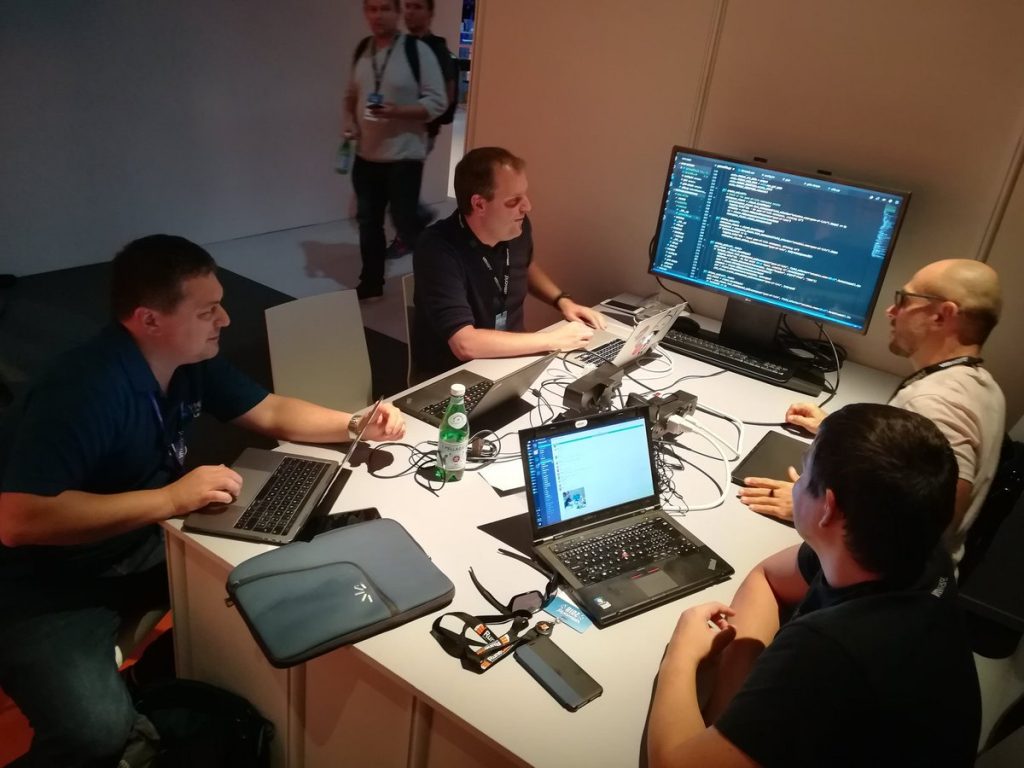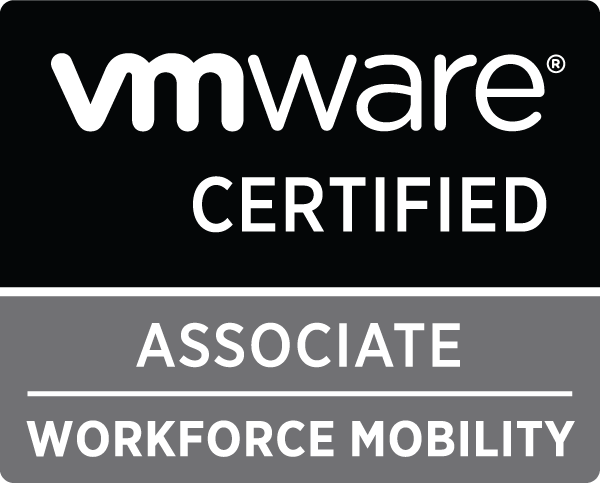Kube-of-Life

The VMworld Hackathon I failed to attend… And how our team won – Part 3
While we had a great story and a good plan on how to make sure we achieved our goals during the hackathon, our team also met a problem where I was unable to attend the hackathon at the last minute because of a work situation.
This left our team with one fewer backend developer, making it harder for the rest.
So we shifted our plan slightly. The hackathon itself was during the evening of the first day of VMworld Europe. This left me with a day to develop a portion of the backend that would at least fulfill the requirement of Phase 1.
Phase 1 was where there was a tool that would manage the life and death of pods in Kubernetes according to Conway’s Game of Life rules.
Developing and documenting this during the day, meeting in the late afternoon with the team to give them a crash course in what I had done, allowed us to stay relatively on track, and would give the team a base to continue on during the hackathon itself.

This is a story in 3 parts:
- Part 1 – The team and the goal
- Part 2 – The story, the plan and the problem
- Part 3 – The implementation, the result and the future

The VMworld Hackathon I failed to attend… And how our team won – Part 2
After finding a great team to be part of at the VMworld Europe Hackathon and defining our goals, it was time to come up with a plan on what we wanted to do.
As a recap, the main goals of our team were:
- Implement Conway’s Game of Life as Kubernetes Pods
- Use VMware VKE
- Use Clarity to visualize the pod status
- Monitor the platform using Wavefront
- Have fun learning, working and meeting great people
We had a great set of goals that we wanted to achieve and so we started to work out a plan to get there. The hackathon in itself is pretty short, you get 4 hours to do all your work, present and demonstrate. That’s not a lot of time.
That’s why we decided to work iteratively and asked ourselves the question “What’s the minimal viable outcome that we want?”. It’s a great question that gets asked a lot when working on projects that are time constrained. What is the goal of the project? What is the minimal requirement if we run out of time? It’s a sad reality that sometimes this happens, but we all experienced it.
We decided that just coming up with a plan is a little too boring, we want to bring a story around this, a story of life and the evolution of it.
This is a story in 3 parts:
- Part 1 – The team and the goal
- Part 2 – The story, the plan and the problem
- Part 3 – The implementation, the result and the future

The VMworld Hackathon I failed to attend… And how our team won – Part 1
As usual, during VMworld Europe in Barcelona, VMware organized another Hackathon for enthusiasts to work in a small teams and develop something impressive in a couple of hours. And as usual, I desperately wanted to participate, so I enrolled and decided to become part of a team called “ContainerQuest!”.
I wanted it desperately, because as my job becomes more and more demanding, i find myself having less and less time to work on side projects and code just for fun of learning something new. And i really wanted to pick that back up at this Hackathon.
Unusually, while i was enrolled in the team, I actually wasn’t able to attend (because of that demanding job roping me in).
More unusual, I still won… Or, to be more accurate, the team i was part of won, and were kind enough to still put my name in as a contributor, causing me to receive my price and some glory!

This is a story in 3 parts:
- Part 1 – The team and the goal
- Part 2 – The story, the plan and the problem
- Part 3 – The implementation, the result and the future







